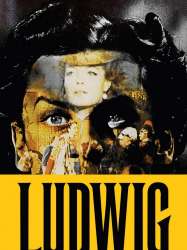The Blue Kite is a chinois film of genre Drama directed by Tian Zhuangzhuang released in USA on 25 march 1994 with Pu Cunxin
The Blue Kite (1994)

If you like this film, let us know!
- Infos
- Casting
- Technical infos
- Photos
- Videos
- Film quotes
- Characters
- Music
- Awards
The Blue Kite (simplified Chinese: 蓝风筝; traditional Chinese: 藍風箏; pinyin: Lán fēngzheng) is a 1993 drama film directed by Tian Zhuangzhuang. Though banned by the Chinese government upon its completion (along with a ten-year ban on filmmaking imposed on Tian), the film soon found a receptive international audience. Along with Zhang Yimou's To Live and Chen Kaige's Farewell My Concubine, The Blue Kite serves as one of the quintessential examples of China's Fifth Generation filmmaking, and in particular reveals the impact the various political movements, including Anti-Rightist Movement and Cultural Revolution, had upon directors who grew up in the 1950s and 1960s.
The film won the Grand Prix at the Tokyo International Film Festival, and Best Film at the Hawaii International Film Festival, both in 1993.
Synopsis
The story is told from the perspective of a young boy (铁头, Tietou, literally meaning 'iron head') growing up in the 1950s and 1960s in Beijing. Three episodes – Hundred Flowers Campaign, the Great Leap Forward and the Cultural Revolution – show the family members evolving, e.g. from the real father, the "loving patriarch," to the protective but unemotional stepfather.Actors
Comments
Leave comment :
Suggestions of similar film to The Blue Kite
There are 12 films with the same actors, 9 films with the same director, 62911 with the same cinematographic genres (including 4070 with exactly the same 2 genres than The Blue Kite), 7854 films with the same themes (including 1230 films with the same 2 themes than The Blue Kite), to have finally 70 suggestions of similar films.If you liked The Blue Kite, you will probably like those similar films :

Europa Europa (1990)
, 1h52Directed by Agnieszka Holland
Origin German
Genres Drama, War, Historical
Themes Politique, Films about religion, Films about sexuality, LGBT-related films, Political films, Films about Jews and Judaism, LGBT-related films, LGBT-related film
Actors Marco Hofschneider, Julie Delpy, André Wilms, Artur Barciś, Michèle Gleizer, Nathalie Schmidt
Rating74%





Solek (a nickname for Solomon, also called "Solly") and his family live in Nazi Germany. On the eve of Solek's bar mitzvah, Kristallnacht occurs. He escapes, naked, then hiding in a barrel. At night, he calls his acquaintance to bring him clothes from his house. She refuses, but throws him a leather jacket with a swastika band on its arm. He comes back home. His family is together at home, but his sister is killed by Nazis. The father, who was born in Łódź, Poland, decides to go back there.

On the Basis of Sex (2018)
, 2hDirected by Mimi Leder
Origin USA
Genres Drama, Biography, Historical
Themes Feminist films, Politique, Political films
Actors Felicity Jones, Armie Hammer, Justin Theroux, Sam Waterston, Kathy Bates, Jack Reynor
Rating71%





Jeune avocate idéaliste, Ruth Bader Ginsburg fait équipe avec son mari Marty pour mettre fin à un siècle de discrimination à l’encontre des femmes. Elle se battra devant la Cour d’appel, puis ira jusqu’à la Cour suprême…

Sacco & Vanzetti (1971)
, 2hDirected by Giuliano Montaldo
Origin Italie
Genres Drama, Historical, Crime
Themes Films about anarchism, Politique, Prison films, Documentary films about politics, Documentary films about anarchism, Political films, Films about capital punishment
Actors Gian Maria Volonté, Riccardo Cucciolla, Cyril Cusack, Geoffrey Keen, Rosanna Fratello, Milo O'Shea
Rating77%





Un hold-up sanglant est commis le 15 avril 1920, dans le Massachusetts. Deux anarchistes d'origine italienne, Nicola Sacco et Bartolomeo Vanzetti sont arrêtés. Malgré le manque de preuves formelles, ils sont condamnés à mort et envoyés à la chaise électrique.

Antony and Cleopatra (1972)
, 2h18Directed by Charlton Heston
Origin United-kingdom
Genres Drama, Historical
Themes Films set in Africa, Politique, Théâtre, Political films, Films based on plays, Films based on works by William Shakespeare, Films about royalty
Actors Charlton Heston, Hildegarde Neil, Eric Porter, John Castle, Fernando Rey, Douglas Wilmer
Rating58%





Antoine et Cléopâtre (1972) est une adaptation cinématographique de Rank Organisation de la pièce du même nom de William Shakespeare. Elle a été réalisée par Charlton Heston et produite par Peter Snell selon un scénario de Federico De Urrutia et de Charlton Heston.

The Assassination of Trotsky (1972)
, 1h43Directed by Joseph Losey
Origin United-kingdom
Genres Drama, Thriller, Horror, Historical
Themes Assassinat, Politique, Political films
Actors Richard Burton, Alain Delon, Romy Schneider, Valentina Cortese, Jean Desailly, Enrico Maria Salerno
Rating56%





Exiled from the Soviet Union in 1929, Leon Trotsky travels from Turkey to France to Norway, before arriving in Mexico in January 1937. The film begins in Mexico City in 1940, during a May Day celebration. Trotsky has not escaped the attention of the Soviet ruler of the Soviet Union, Joseph Stalin, who sends out an assassin named Frank Jacson. The killer decides to infiltrate Trotsky's house by befriending one of the young communists in Trotsky's circle.

The Dawns Here Are Quiet (1972)
, 2h37Directed by Stanislav Rostotski
Genres Drama, War, Historical
Themes Politique, Political films
Actors Yelena Drapeko, Olga Ostroumova, Andrey Martynov, Viktor Avdyushko, Vladimir Ivashov, Boris Tokarev
Rating80%





The film is set in Karelia (near Finland) in 1942 during World War II and was filmed near Ruskeala. Senior Sergeant Vaskov is stationed with a group of young female anti-aircraft gunners in a railway station far from the front line. Vaskov is not used to these gunners' active, playful personalities and therefore clashes with them over daily issues. But Vaskov, being the only man in the village, has to accommodate them in many cases.

Ludwig (1973)
, 4h45Directed by Luchino Visconti
Origin Italie
Genres Drama, Biography, Historical
Themes Films about music and musicians, Politique, Films about sexuality, LGBT-related films, Films about classical music and musicians, Musical films, Political films, LGBT-related films, Films about royalty, LGBT-related film
Actors Helmut Berger, Trevor Howard, Silvana Mangano, Sonia Petrovna, Romy Schneider, Gert Fröbe
Rating74%





Évocation de la vie de Louis II de Bavière, depuis son couronnement à l'âge de dix-huit ans et demi jusqu'à son internement et sa mort à quarante. On y découvre la complicité presque amoureuse qui le lie à sa cousine Sissi (la jeune impératrice d'Autriche-Hongrie) qui est à deux doigts de parvenir à lui faire épouser sa sœur Sophie malgré le peu d'attirance qu'il a pour celle-ci, son entichement déraisonnable pour la musique de Richard Wagner, dont il devient le très généreux mécène au point de lui faire construire un opéra, les circonstances qui l'amènent à céder aux penchants qui lui seront funestes : son goût du rêve, du post-romantisme, des garçons (son palefrenier devenant son chambellan et homme de confiance très intime), des châteaux de contes de fées, pour l'édification desquels il dépense des fortunes et dans lesquels il fuira les dures réalités de son temps (à savoir : l'irrésistible unification allemande autour de la Prusse de Bismarck qui vassalise tous les autres royaumes ou principautés germaniques, Bavière y compris) en s'imaginant, entouré d'une garde rapprochée de serviteurs, qu'il est encore vrai roi en son royaume. Jusqu'à ce que le gouvernement effectif de Munich l'extirpe de son rêve et l'interne au château de Berg… où il meurt dès le lendemain de son arrivée en tentant, dans des circonstances jamais vraiment élucidées, de s'évader.
 , 2h20
, 2h20Directed by Hans-Jürgen Syberberg
Origin German
Genres Drama, Historical
Themes Politique, Political films, Films about royalty
Actors Harry Baer, Peter Kern, Ingrid Caven, Monica Bleibtreu, Johannes Buzalski, Peter Przygodda
Rating70%






Backstabbing for Beginners (2018)
, 1h30Directed by Per Fly
Origin USA
Genres Drama, Thriller, Historical, Politic
Themes Politique, Political films
Actors Theo James, Ben Kingsley, Jacqueline Bisset, Rossif Sutherland, David Dencik, Rachel Wilson
Rating62%





Jeune homme idéaliste, Michael Sullivan décroche l'emploi de ses rêves : il devient coordinateur de l'opération Pétrole contre nourriture, un programme visant à satisfaire les besoins humanitaires du peuple irakien après la guerre du Golfe. Mais Sullivan découvre que derrière cette opération humanitaire se cache une conspiration au plus haut niveau. L'Irak attise la convoitise de bon nombre d'agents du gouvernement américain et de pays étrangers. Après avoir mené une enquête secrète, l'apprenti fonctionnaire comprend que ses soupçons étaient bien fondés et qu'une importante affaire de corruption est en train de prendre forme. Mais il s'aperçoit que son propre chef est lui-même impliqué dans ce scandale comme de nombreux responsables politiques. Sullivan n'a pas d'autre choix que de devenir un lanceur d'alerte qui, en révélant les faits, met en danger sa vie et la carrière de son mentor.

St. Michael Had a Rooster (1972)
, 1h30Directed by Frères Taviani
Origin Italie
Genres Drama, Historical
Themes Politique, Political films
Actors Giulio Brogi, Renato Scarpa, Samy Pavel
Rating72%





À la fin du XIX siècle, un anarchiste italien, Giulio Manieri, coupable d'avoir semé la sédition dans un village d'Ombrie, est condamné à mort. Sa peine est finalement commuée en réclusion à perpétuité. En dix ans de solitude, reclus dans sa cellule, Giulio ne cesse (re)penser la « révolution » à laquelle il a tout sacrifié. Ainsi, peut-il encore survivre, espérer... Or, dix ans plus tard, lors d'un transfert en barque, il croise, justement, une nouvelle génération de révolutionnaires, eux aussi incarcérés : il essaie de leur parler, de se faire entendre et comprendre. Mais le dialogue tourne court, car, le monde et les temps ont désormais changé. Giulio prend alors conscience de la vanité de ses idéaux et de l'inutilité de son combat ; il se laisse engloutir par les flots.
 Connection
Connection

